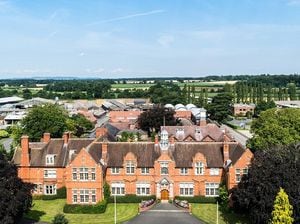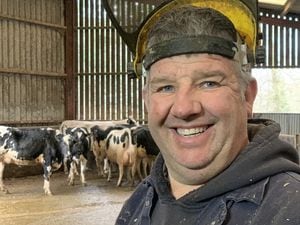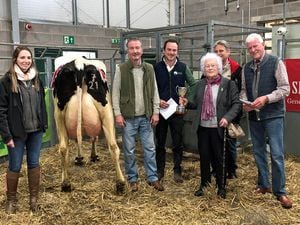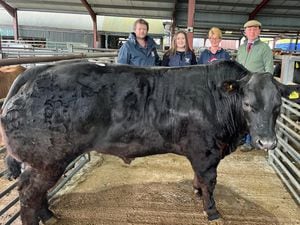Harper Adams to become a UK centre for study of peat farming
A share of a £5 million UK Government fund aimed at solving challenges with lowland peat is to make Harper Adams University the first UK centre for the study of peat farming.

The funding was announced by DEFRA for a series of projects aimed at improving lowland peat and tackling carbon emissions and includes a proposal from Harper Adams to launch the Paludiculture Innovation Project (PIP).
Adeney Yard, a field on the Harper Adams University estate, will be rewet and used to grow crops and assess the impact of rewetting peatland.
A cross-disciplinary team from Harper Adams will assess the work undertaken, its impact and effects to try to start building more information about paludiculture, the science behind crop production on wet peat, and the best ways to grow and harvest crops using these new approaches.
Team members among the University’s employees will include Dr Julia Casperd, Dr Lucy Crockford, Professor Jim Monaghan, Professor Karl Behrendt, Dr Simon Jeffery, Dr Iona Huang and Future Farm Executive Project and Programme Consultant Scott Kirby.
Scott said: “The problem with peat is that when it is cultivated decomposition takes place - this is the oxidation of the organic matter in the soil.
!It results in a large emission of greenhouse gasses, up to 10 times more than mineral soils. It also means that the soil is disappearing at 10-30 mm per year, many of these fields have only 30-100 years left before the peat is gone.
“New reporting rules mean the Global Warming Potential values of peatland are set to change, and this change is likely to shift the Land use, land use change and forestry sector in carbon calculations from being considered a net sequester to an emitter of carbon.
“For farmers on lowland peat who are focused on their carbon footprint, that represents a real problem, because as carbon calculators catch up and start to differentiate soil types and adopt new IPCC guidelines, they will see a massive increase in their businesses’ reported carbon emissions.
“The PIP project will use Adeney Yard on our Future Farm – part of the naturally occurring lowland peatlands present in Shropshire – to examine if rewetting lowland peat can reduce greenhouse gas emissions and ultimately find ways to turn farmed peat back into a carbon sink, something it was for millennia before drainage and cultivation began
“It’s a significant challenge; peat-based soils currently contribute to food production out of proportion to the area involved so we need to develop solutions that can be equally productive. This will mean examining new crops suited to wetland production and new techniques to cope with wetter





